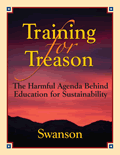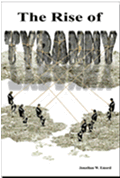Other
Emord
Articles:
Mandatory Vaccination is an
Assault on Individual Liberty
By Attorney Jonathan
Emord
Author of "The Rise of Tyranny" and
"Global Censorship of Health Information" and
"Restore The Republic"
July 6, 2015
NewsWithViews.com
For years the Supreme Court has struggled with Takings jurisprudence in an effort to bend over backwards in defense of government, despite the plain language of the Fifth Amendment. In Horne v. Department of Agriculture, however, the Supreme Court got it right in a big way and, by so doing, sent a clear message to the federal government: deprivation of personal property without just compensation is forbidden. This decision, coming a few short days before King v. Burwell, is in stark contrast to the mental gymnastics performed by the Court to save Obamacare at all odds.
In an 8-1 decision, Justice John Roberts, writing for the Court in Horne, condemned a United States Department of Agriculture set-aside program that had been operating since 1937. Under that program, the federal government could compel raisin growers to set aside any amount of their crop without compensation unless and until the government sold the crop on the open market at a later date. The aim of the program is to manipulate market prices for crops. In the 2002-2003 season, the USDA Raisin Administration Committee demanded that raisin growers set aside 47% of their crop, and in 2004-2005, 30%.
Marvin and Laura Horne, owners of a farm in California’s Central Valley, refused to oblige. When USDA trucks arrived at their farm to compel delivery of the raisins, they sent the government agents away without a single raisin but with a very big reason: You may not take our property without just compensation, as required by the Fifth Amendment to the United States Constitution. In return, the USDA slapped the Hornes with a massive set of fines and penalties, compelling payment of $480,000 for the raisins the Hornes refused to turn over and $200,000 in additional penalties.
In litigation over the issue, the Ninth Circuit sided with the government, but the Supreme Court reversed. “The government has a categorical duty to pay just compensation when it takes your car, just as when it takes your home,” wrote Justice Roberts, rebuking the Ninth Circuit for holding raisins less worthy of Fifth Amendment protection than real estate.
The Obama Justice Department had argued that the Fifth Amendment’s Takings Clause did not apply, stating that the raisins, while taken, were held for potential future sale and, based thereon, the Horne’s could expect a potential return, albeit one not equal to the fair market value of the crop. Moreover, the Solicitor General argued that the Hornes were free to sell a crop not subject to the Department of Agriculture’s set-aside but chose not to do so. Those arguments were greeted warmly by only one Justice, Sonia Sotomayor, who developed them further in her lone dissent.
The majority, however, recognized a critical and fundamental point about the Fifth Amendment. It matters not what the government does with the property it has taken, just whether it takes it, thereby depriving the owner of ownership and control over it. The decision is a powerful redirection in wayward Fifth Amendment jurisprudence, resurrecting the original meaning of the Fifth Amendment, a powerful barrier against expansive government acquisition and control of private property. The Court struck down the USDA fines and penalties, liberating the Hornes from that enormous burden.
Immediately on the legal chopping block are a host of Department of Agriculture set aside programs affecting prunes, dates, almonds, tart cherries, walnuts, and spearmint oil, to name a few. Dozens of comparable government programs that have removed from private ownership and control private property are now vulnerable to constitutional attack. A legal revolution is no doubt imminent with property owners and their counsel taking to court all manner of set asides disliked by a beleaguered industry. The raisin set aside program, a product of the New Deal, has been around since 1937 and is emblematic of aggressive interventionist policies whereby the federal government has sought to man handle the market by depriving private property owners of what is rightly theirs and doing so without just compensation.
|
|
The Horne decision proves that it remains possible for the Supreme Court to take a dramatic step in favor of our Constitution of Liberty. With vacancies on the court anticipated, however, the critical question turns to who will occupy the White House following the 2016 elections. If Hillary, then we will likely see a shift to the left on the Court, inviting reversal of gains such as this one. If a Republican, then we will likely see an expansion of those who favor restoration of jurisprudence supportive of the Constitution’s plain and intended meaning.
Click here to visit NewsWithViews.com home page.
© 2015 Jonathan W. Emord - All Rights Reserved
Jonathan W. Emord is an attorney who practices constitutional and administrative law before the federal courts and agencies. Ron Paul calls Jonathan “a hero of the health freedom revolution” and says “all freedom-loving Americans are in [his] debt . . . for his courtroom [victories] on behalf of health freedom.” He has defeated the FDA in federal court a remarkable eight times, seven on First Amendment grounds, and is the author of the Amazon bestsellers The Rise of Tyranny, Global Censorship of Health Information, and Restore the Republic. He is the American Justice columnist for U.S.A. Today Magazine and joins Robert Scott Bell weekly for “Jonathan Emord’s Sacred Fire of Liberty,” an hour long radio program on government threats to individual liberty. For more info visit Emord.com, join the Emord FDA/FTC Law Group on Linkedin, and follow Jonathan on twitter (@jonathanwemord).
Website: Emord.com
E-Mail: jemord@emord.com
In an 8-1 decision, Justice John Roberts, writing for the Court in Horne, condemned a United States Department of Agriculture set-aside program that had been operating since 1937.














 Share This Article
Share This Article







